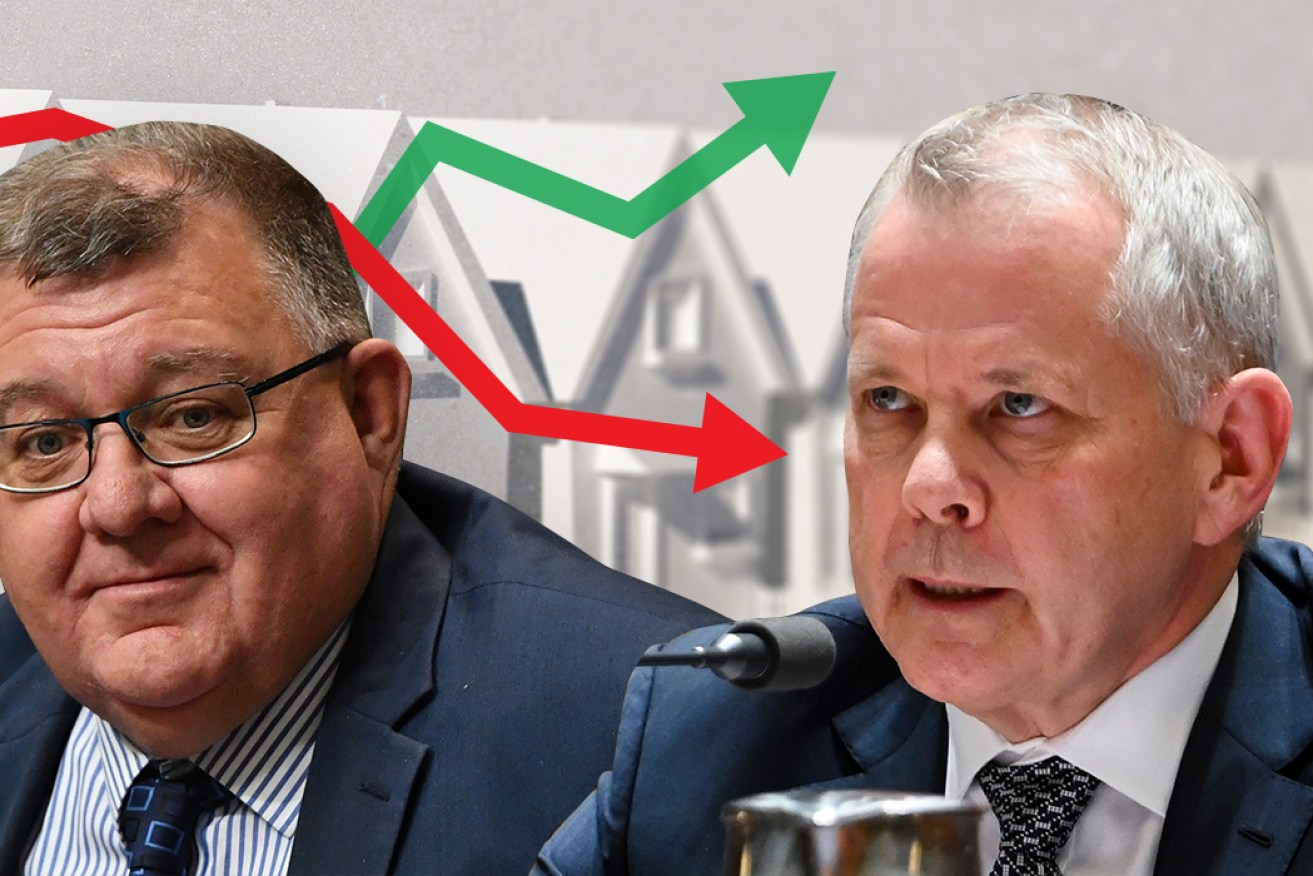NAB CEO fails to calm Lib’s fears Labor’s negative gearing policies will prompt housing plunge


Craig Kelly's stance on negative gearing reforms remains steadfast despite comments from NAB's CEO.
Liberal backbencher Craig Kelly has maintained his opposition to negative gearing changes despite a major bank chief’s assertions that Labor’s proposed reforms won’t hurt the market.
In a parliamentary committee hearing on Wednesday, Mr Kelly pointed to a controversial report from SQM Research that suggested Labor’s promised negative gearing restrictions will push down house prices, and asked NAB interim chief executive Phil Chronican what effect that would have on small businesses using homes as loan securities.
Labor subsequently confirmed their plans to implement the reforms from January 1, 2020, if they win the upcoming election.
While a fall in property prices would change the bank’s loan-to-value ratios and reduce the volume that could be loaned on any given property, Mr Chronican said it was unlikely the property market would fall by the amounts predicted by SQM Research.
Mr Chronican and NAB chief financial officer Gary Lennon also noted the falling prices seen in the past year and a half followed immense gains over the preceding six years, and the only people likely to be stung by further decreases are those who bought at the height of the property boom.
“If the underlying security value declined, and it declined by more than the buffer that we had allowed for when writing the loan, then we would need to talk to the borrower about bringing the loan back to a better loan-to-value ratio,” Mr Chronican said.
“But I would stress that the markets we’re talking about are the ones where property values have gone up materially so it might have an effect on those that had purchased in 2016 or 2017, but if you purchased in 2013 or 2014 it’s probable the decline is yet to outweigh [those gains].”
Speaking to The New Daily on Friday, Mr Kelly said he remains opposed to the proposed changes and defended the SQM Research report.
“These people are professionals in the industry and, funnily enough, if you look at that report they support some changes to negative gearing, but their report just highlighted the effects it would have,” he said.
Mr Kelly added that the last time negative gearing arrangements were changed “house prices fell and it didn’t work”, with those changes repealed shortly afterwards. He also cautioned that further pressure on house prices would have a “ripple effect” that could cut household expenditure, make homes less valuable, and push up rents.
“People should be very concerned. Even if you, as a young person, think it will make it easier to get into property, it’s going to make your rent more expensive in the meantime,” he said.
The questions follow months of debate over the proposed changes, with the Coalition and property lobbies saying the changes will hurt both home-owners and renters, while Labor and other commentators say the changes will help fix the affordability issue.
Other banks non-committal
Following the remarks made by Mr Chronican, The New Daily contacted the other three big banks and asked whether they had conducted any modelling on how the proposed changes would affect the market. Not one was prepared to comment.
Commonwealth Bank and Westpac both declined to comment on the possible changes, and neither bank could confirm whether any in-house modelling had been conducted to see how the property market could be affected.
However, in an interview with Australian Financial Review in January, Westpac chief executive Brian Hartzer said the proposed negative gearing changes have given investors “reason to pause” in the lead-up to the election.
ANZ did not provide a response.
Prices to slide for 12 months
While Mr Chronican said changes to negative gearing and capital gains won’t make the downward trend in property prices worse, NAB’s current projections suggest prices will continue their downward trend in major capital cities.
“Our expectation is that we’ll continue to see that softness for the next 12 to 18 months,” Mr Chronican said.
Assuming the economy grows at the pace forecast for the next three to four years, Mr Chronican said, the property market will arrive at “a new base that house prices can grow from in line with the rest of the economy”.
Those comments are broadly in line with remarks made by Reserve Bank governor Philip Lowe in February, when he told the House of Representatives economics committee that Australia’s “resilient” economy won’t “derail” as a result of the declining values.








